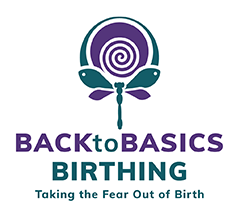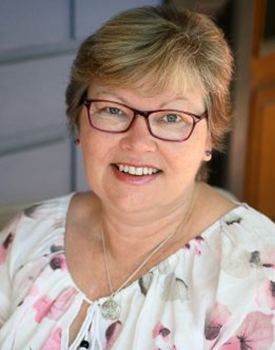Contact Vicki
If you have any questions or would just like more information please don't hesitate to get in touch by clicking the button below and filling out the contact form.
Contact Vicki

Choosing a care provider for your birth can be a daunting task.
Many women feel they are going to get a better birth by going with a private Obstetrician, but statistics show that women are more likely to have inductions, interventions or end up with a caesarean by going private, so it is important for you to have a list of questions to ask potential Obstetricians to notice any red flags or areas where your potential care provider may not be the right choice for you.
Recommendations from friends, family and others (especially on social media) may not be the best way for you to choose your care provider, because they are giving you a recommendation based on their own experience with their own set of circumstances, and we don’t know what those circumstances were.
The other thing to consider is that some women are happy to be induced, happy to have interventions, happy to be stuck on the bed with an epidural or happy to have a care provider who just tells them what to do, so it is important for you to firstly decide what kind of birth you would like to have, and what do you want to avoid.
Finding a care provider is just the same as interviewing someone for a job. You have to write your position description based on three key points:
So, your first step is to write down all your wants and needs for your birth, so you set a base line of what you really want, what you really need and anything else that you are willing to negotiate.
It also makes sense to have a set of questions along with doing some research about each candidate and then “interview” them just like you would be shortlisting candidates for a job.
Then by interviewing several candidates who “sound good on paper” you will be able to choose the one that feels most right for you and your birth philosophies.
Ask the hard questions – don’t be shy – because that is the only way you are going to eliminate the ones that don’t fit your position description.
Don’t waste your time with someone you sense is not going to be supportive of your choices.
Don’t just “fake it till you make it” because you are only going to get one chance to birth this baby in a positive, calm way, and if you are someone who doesn’t want routine or unnecessary interventions then you need to make the right choices when it comes to your care provider.
Get all the information you need and then decide “is this care provider going to be the best and supportive caregiver for me and my circumstances?”
Yes, connecting with your Obstetrician is important as well, because at the end of the day they are going to be there in your most intimate and vulnerable moment so you want to know that you can develop trust and rapport with them and like them.
But liking them is not enough – it is just the icing on the cake.
You can like an Obstetrician but that doesn’t mean that they are going to be the perfect fit for you and your birth preferences.
If you like an Obstetrician, take them out for a cup of tea and send them a Christmas card but don’t choose them because you or a family member or friend or even someone on Facebook said how much they liked them.
The choices you make can and will affect the outcome of your birth.
All women have the right to take control and ownership of their birth and their body while also preventing unnecessary routine interventions.
All women have the right to change their mind as well, at any stage.
Be aware of your rights as a pregnant woman in Australia to support you and your choices. This will give you the confidence to ask questions, decline recommendations and make informed choices.
Every woman must be provided with all the information she needs to make an informed choice and that choice must be respected by everyone working for her, whether they like it or not and that is again clearly stated in the AMA Maternity Decision-Making Guidelines.
Better still look at alternative choices you have with midwives, who are the experts when it comes to physiological birth.
If you are low risk in Perth, then you can choose midwifery-led care through the Community Midwifery Program (CMP) or the Family Birthing Centre or even a Privately Practising Midwife, who may also have admitting rights at either King Edward Memorial Hospital, or Fiona Stanley Hospital.
You could also consider having a doula, who is a non-medical professional trained to provide continuous physical, emotional and informational support to a woman and her partner before, during and after childbirth. This can apply to a woman planning a physiological birth, home birth, hospital birth or a planned caesarean.
Here are all the national statistics and important resources that you can check for statistics in Australia:
The National Core Australian Maternity Indicators released by the Australian Institute of Health & Welfare:
https://www.aihw.gov.au/reports/mothers-babies/ncmi-data-visualisations/contents/summary
The Australian Mothers’ & Babies Reports are a great way for you to keep abreast of statistics across Australia:
Mothers & babies Overview – Australian Institute of Health and Welfare (aihw.gov.au)
You can also obtain the individual states and territories statistics by contacting your health department in your state.
For those in Western Australia, which is where I am based, here is the website:
https://ww2.health.wa.gov.au/Reports-and-publications/Western-Australias-Mothers-and-Babies
If you have any questions or would just like more information please don't hesitate to get in touch by clicking the button below and filling out the contact form.
Contact Vicki